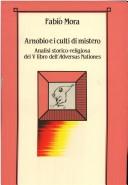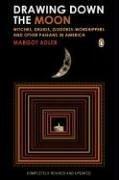| Listing 1 - 10 of 25 | << page >> |
Sort by
|
Book

ISBN: 9633862566 9789633862568 Year: 2017 Publisher: Budapest New York
Abstract | Keywords | Export | Availability | Bookmark
 Loading...
Loading...Choose an application
- Reference Manager
- EndNote
- RefWorks (Direct export to RefWorks)
Do the terms 'pagan' and 'Christian,' 'transition from paganism to Christianity' still hold as explanatory devices to apply to the political, religious and cultural transformation experienced Empire-wise? Revisiting 'pagans' and 'Christians' in Late Antiquity has been a fertile site of scholarship in recent years: the paradigm shift in the interpretation of the relations between 'pagans' and 'Christians' replaced the old 'conflict model' with a subtler, complex approach and triggered the upsurge of new explanatory models such as multiculturalism, cohabitation, cooperation, identity, or group cohesion. This collection of essays, inscribes itself into the revisionist discussion of pagan-Christian relations over a broad territory and time-span, the Roman Empire from the fourth to the eighth century. A set of papers argues that if 'paganism' had never been fully extirpated or denied by the multiethnic educated elite that managed the Roman Empire, 'Christianity' came to be presented by the same elite as providing a way for a wider group of people to combine true philosophy and right religion. The speed with which this happened is just as remarkable as the long persistence of paganism after the sea-change of the fourth century that made Christianity the official religion of the State. For a long time afterwards, 'pagans' and 'Christians' lived 'in between' polytheistic and monotheist traditions and disputed Classical and non-Classical legacies.

ISBN: 8870628582 9788870628586 Year: 1994 Volume: 10 Publisher: Roma Bretschneider
Abstract | Keywords | Export | Availability | Bookmark
 Loading...
Loading...Choose an application
- Reference Manager
- EndNote
- RefWorks (Direct export to RefWorks)
Mysteries, Religious. --- Christianity and other religions --- Mystères religieux --- Christianisme --- Roman --- Relations --- Religion romaine --- Arnobius, --- 239.3 --- Religion Polemics against pagans and heathens in apostolic times --- Mystères religieux

ISBN: 0143038192 Year: 1979 Publisher: New York, New York the Penguin Group
Abstract | Keywords | Export | Availability | Bookmark
 Loading...
Loading...Choose an application
- Reference Manager
- EndNote
- RefWorks (Direct export to RefWorks)
Paganism --- religion --- the Pagan world view --- witches --- the Wiccan revival --- the Craft --- magic --- ritual --- feminism --- Neo-Pagans --- the Pagan Reconstructionists --- the Church of All Worlds --- the Occult --- druidry --- Goddess-worshipping --- America
Book
ISBN: 9783788723644 3788723645 Year: 2009 Volume: 102 Publisher: Neukirchen-Vluyn Neukirchener Verlag
Abstract | Keywords | Export | Availability | Bookmark
 Loading...
Loading...Choose an application
- Reference Manager
- EndNote
- RefWorks (Direct export to RefWorks)
God --- Salvation outside the church --- Theology of religions (Christian theology) --- Biblical teaching --- Bible --- Criticism, interpretation, etc --- 22.08*01 --- Bijbelse theologie: God; Godsleer --- 22.08*01 Bijbelse theologie: God; Godsleer --- Religions --- Theology, Doctrinal --- Salus extra ecclesiam --- Salvation of infidels --- Salvation of pagans --- Salvation --- God (Christianity) --- God (Judaism) --- Christianity --- Criticism, interpretation, etc. --- Biblia --- God - Biblical teaching
Book
ISBN: 8810403908 9788810403907 Year: 2005 Volume: 11 Publisher: Bologna EDB
Abstract | Keywords | Export | Availability | Bookmark
 Loading...
Loading...Choose an application
- Reference Manager
- EndNote
- RefWorks (Direct export to RefWorks)
Salvation outside the church --- Religion and ethics --- 291 --- 2 KÜNG, HANS --- Salus extra ecclesiam --- Salvation of infidels --- Salvation of pagans --- Salvation --- Ethics and religion --- Ethics --- 2 KÜNG, HANS Godsdienst. Theologie--KÜNG, HANS --- Godsdienst. Theologie--KÜNG, HANS --- Godsdienstwetenschap: vergelijkend --- Christianity --- Küng, Hans --- Küng, Hans, --- Kūngh, Hāns, --- Kʻung, Han-ssu, --- Kueng, Hans, --- Kong, Hansi, --- Konghansi, --- 孔汉思,
Book
ISBN: 9780691176086 0691176086 1400866359 Year: 2015 Publisher: Princeton, NJ : Princeton University Press,
Abstract | Keywords | Export | Availability | Bookmark
 Loading...
Loading...Choose an application
- Reference Manager
- EndNote
- RefWorks (Direct export to RefWorks)
From the turn of the fifth century to the beginning of the eighteenth, Christian writers were fascinated and troubled by the "Problem of Paganism," which this book identifies and examines for the first time. How could the wisdom and virtue of the great thinkers of antiquity be reconciled with the fact that they were pagans and, many thought, damned? Related questions were raised by encounters with contemporary pagans in northern Europe, Mongolia, and, later, America and China.Pagans and Philosophers explores how writers-philosophers and theologians, but also poets such as Dante, Chaucer, and Langland, and travelers such as Las Casas and Ricci-tackled the Problem of Paganism. Augustine and Boethius set its terms, while Peter Abelard and John of Salisbury were important early advocates of pagan wisdom and virtue. University theologians such as Aquinas, Scotus, Ockham, and Bradwardine, and later thinkers such as Ficino, Valla, More, Bayle, and Leibniz, explored the difficulty in depth. Meanwhile, Albert the Great inspired Boethius of Dacia and others to create a relativist conception of scientific knowledge that allowed Christian teachers to remain faithful Aristotelians. At the same time, early anthropologists such as John of Piano Carpini, John Mandeville, and Montaigne developed other sorts of relativism in response to the issue.A sweeping and original account of an important but neglected chapter in Western intellectual history, Pagans and Philosophers provides a new perspective on nothing less than the entire period between the classical and the modern world.
Paganism --- Paganism. --- Philosophy and religion. --- Philosophy --- Philosophy. --- History. --- Civilization, Pagan --- Heathenism --- Religions --- Christianity and philosophy --- Religion and philosophy --- Religion --- Acts of the Apostles. --- America. --- Anicius Manlius Severinus Boethius. --- Aristotelians. --- Aristotle. --- Arts Faculties. --- Asia. --- Augustine of Hippo. --- Augustine. --- Boethius. --- China. --- Chinese philosophers. --- Chinese religion. --- Christian Europe. --- Christian belief. --- Christian teachers. --- Christianity. --- Christianization. --- City of God. --- Collationes. --- Consolation of Philosophy. --- Dante Alighieri. --- Early Middle Ages. --- English poets. --- Entheticus de dogmate philosophorum. --- Epicurus. --- Europe. --- Geoffrey Chaucer. --- Giovanni Boccaccio. --- Gottfried Willhelm Leibniz. --- Hell. --- Historical Synthesis. --- John of Piano Carpini. --- John of Salisbury. --- Long Middle Ages. --- Middle Ages. --- Mongols. --- Peter Abelard. --- Policraticus. --- Problem of Paganism. --- Roman history. --- The Book of John Mandeville. --- Theologia Christiana. --- Theologia Summi Boni. --- University of Oxford. --- University of Paris. --- Western Europe. --- Willehalm. --- William Langland. --- William of Rubruk. --- ancient models and language. --- ancient paganism. --- ancient pagans. --- classical antiquity. --- contemporary pagans. --- early medieval scholars. --- encyclopaedic tradition. --- higher education. --- humanism. --- knowledge. --- modernity. --- pagan culture. --- pagan knowledge. --- pagan salvation. --- pagan society. --- pagan virtue. --- pagan wisdom. --- paganism. --- pagans. --- philosophy. --- relativism. --- sack of Rome. --- salvation. --- theological challenges. --- theological problems. --- theoretical developments. --- universities. --- university theologians. --- unknown pagan peoples. --- virtue. --- virtuous pagans. --- wisdom.
Book
ISBN: 0807032379 Year: 1979 Publisher: Boston Beacon Press
Abstract | Keywords | Export | Availability | Bookmark
 Loading...
Loading...Choose an application
- Reference Manager
- EndNote
- RefWorks (Direct export to RefWorks)
Esoteric sciences --- Religious studies --- Sociology of culture --- Witches --- Magic --- Esotericism --- Rituals --- Spirituality --- Book --- United States of America --- Paganism --- religion --- the Pagan world view --- witches --- the Wiccan revival --- the Craft --- magic --- ritual --- feminism --- Neo-Pagans --- the Pagan Reconstructionists --- the Church of All Worlds --- the Occult --- druidry --- Goddess-worshipping --- America
Book
ISBN: 0691214298 Year: 1996 Publisher: Princeton (New Jersey) Baltimore, Md. : Princeton University Press Project MUSE,
Abstract | Keywords | Export | Availability | Bookmark
 Loading...
Loading...Choose an application
- Reference Manager
- EndNote
- RefWorks (Direct export to RefWorks)
Ch. 1 Conversion and Christian Growth 3; Ch. 2 The Class Basis of Early Christianity 29; Ch. 3 The Mission to the Jews: Why It Probably Succeeded 49; Ch. 4 Epidemics, Networks, and Conversion 73; Ch. 5 The Role of Women in Christian Growth 95 Ch. 6 Christianizing the Urban Empire: A Quantitative Approach 129; Ch. 7 Urban Chaos and Crisis: The Case of Antioch 147; Ch. 8 The Martyrs: Sacrifice as Rational Choice 163 Ch. 9 Opportunity and Organization 191; Ch. 10 A Brief Reflection on Virtue 209; Notes 217; Bibliography 223; Index 243.
Iglesia --- Historia --- Alexandria. --- Athens. --- Brown, Peter. --- Carcopino, Jerome. --- Conversion. --- Diaspora. --- Dio Cassius. --- Epidemics. --- Eusebius. --- Frend, W.H.C. --- Galen. --- God-Fearers. --- Harnack, Adolf. --- Hock, Ronald. --- Ignatius of Antioch. --- Isis. --- Jesus. --- Judaism. --- Julian. --- Livy. --- London. --- Martyrs. --- Meeks, Wayne. --- Networks, social. --- Origen. --- Pagans. --- Paul. --- Pluralism. --- Rational choice theory. --- Revitalization movements. --- Salamis. --- Smallpox. --- Tertullian. --- Trajan. --- Valentina. --- White, L. Michael.
Book
ISBN: 9781844656479 Year: 2013 Publisher: Durham / Bristol Acumen Publishing Limited
Abstract | Keywords | Export | Availability | Bookmark
 Loading...
Loading...Choose an application
- Reference Manager
- EndNote
- RefWorks (Direct export to RefWorks)
pagan music --- paganism and the counter-culture --- popular music --- Stonehenge --- popular music and sacred place --- pagan metal --- Goth --- paganism and the British folk revival --- dance and pagan identity --- total solar eclipse festivals --- cosmic pilgrims --- planetary culture --- techno-shamanism --- ecstasy --- sacramental song --- theology --- religious music --- American pagans --- New Age --- internet pagan communities --- celtic music --- esoterrorism --- industrial paganism --- heavy metal music --- folk metal
Book
Year: 2004 Publisher: New York, New York Oxford University Press, Inc.
Abstract | Keywords | Export | Availability | Bookmark
 Loading...
Loading...Choose an application
- Reference Manager
- EndNote
- RefWorks (Direct export to RefWorks)
modernization --- new religions --- alternative spiritualities --- the reenchantment of the West --- modern religious movements --- science and religion --- new religious movements and the internet --- social conflict --- violence --- the North American Anti-Cult movement --- France --- Satanism --- ritual abuse --- conversion --- brainwashing --- psychology --- Millennialism --- women --- children --- Neo-Pagans --- UFOs --- Esotericism --- East Asia --- witchcraft --- Wicca --- Neo-Paganism
| Listing 1 - 10 of 25 | << page >> |
Sort by
|

 Search
Search Feedback
Feedback About UniCat
About UniCat  Help
Help News
News